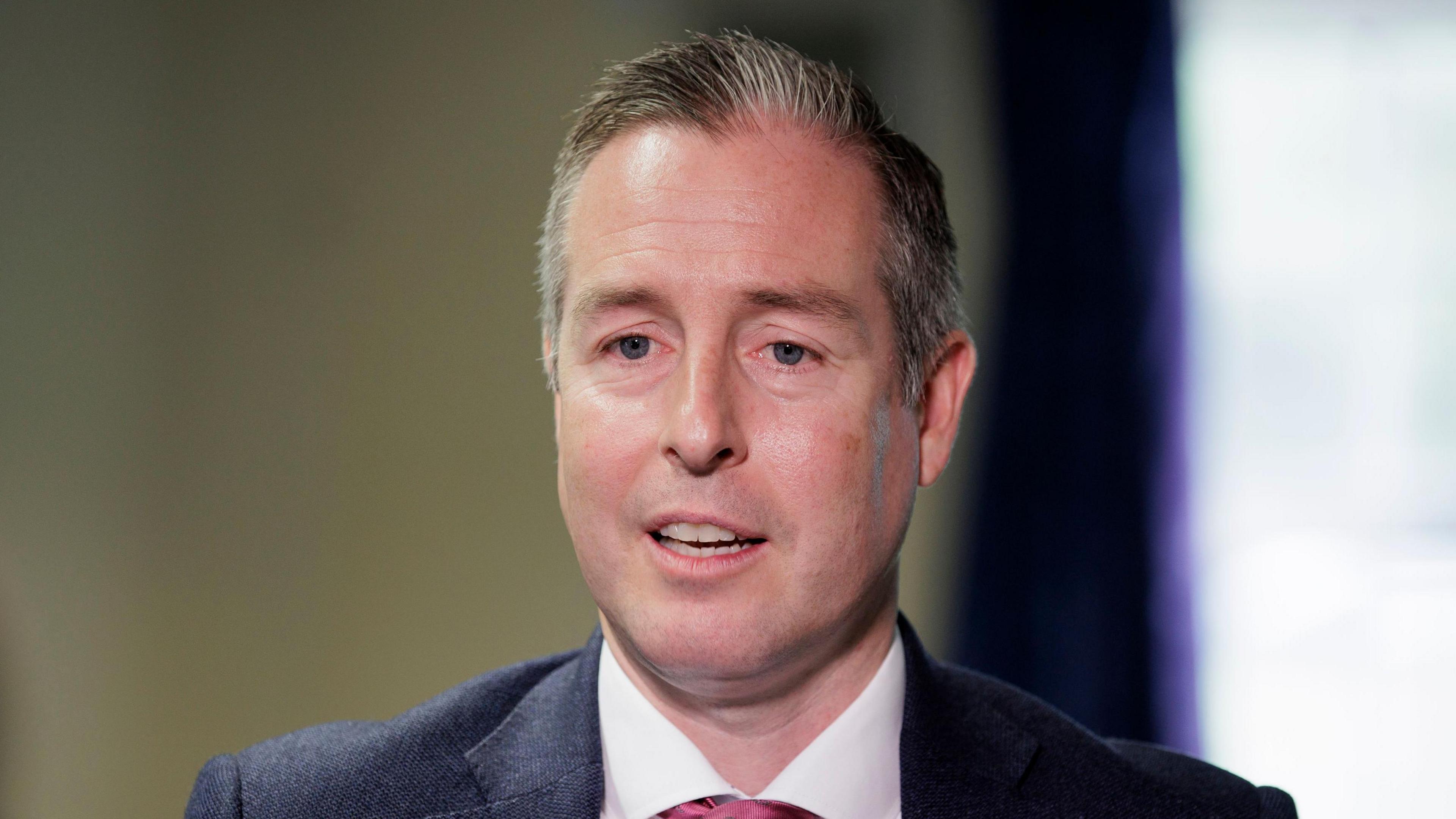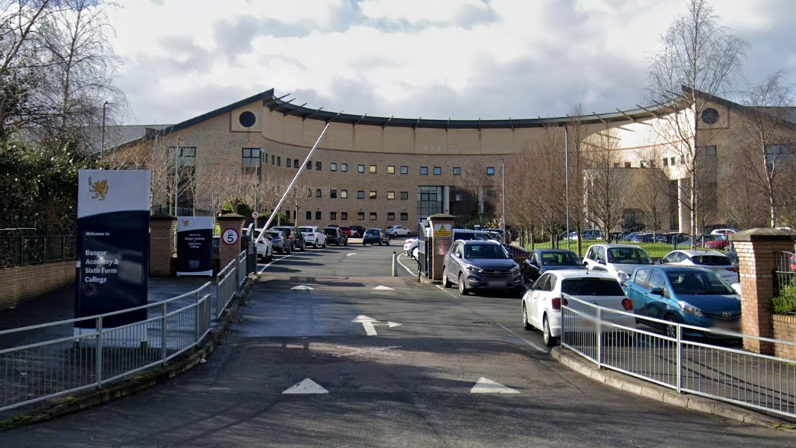Givan rejects schools' bids to become integrated

Paul Givan has turned down bids by two Bangor schools to become integrated
- Published
The Education Minister has turned down a bid by Northern Ireland's largest school to become integrated.
A clear majority of parents of pupils had backed the change at Bangor Academy, which has around 1,850 pupils.
But Paul Givan has decided that the plans should not proceed.
Givan has also turned down a proposal by another school in Bangor, Rathmore Primary, to change to become an integrated one.
Enough Catholics at each school?
According to documents published by the Department of Education, officials had recommended that both schools transform to become integrated but the minister decided not to approve that recommendation.
In rejecting the bids, Givan said that there was not enough evidence that there would be enough Catholic pupils at each school for it to provide integrated education.
He cited Stormont legislation which said that there should be "reasonable numbers of both Protestant and Roman Catholic children" in integrated schools.
"Even on the most optimistic analysis, it would appear highly unlikely that reasonable numbers could be achieved," Givan wrote.

Bangor Academy had submitted a formal proposal to change its status
BBC News NI understands that similar reasons were behind the minister's decision to reject Bangor Academy's plans.
In a statement, the principal of Bangor Academy, Matthew Pitts, said the school community was "extremely disappointed" by the minister's decision.
"We have been on a significant journey as a school and the transformation process has been exciting and has helped us redefine our school's vision for education moving forward," he said.
"We are proud of the inclusive, diverse nature of our school and we will continue to deliver an outstanding education in the future regardless of this decision.
"We are disappointed that the minister has gone against the significant number of parents who voted in favour of integration but I would like to thank them for their engagement, challenge and sense of optimism that this process delivered.
"It is a privilege to work for such a forward thinking, positive and supportive community."
'23 languages spoken'
Following its parental vote, Bangor Academy had submitted a formal proposal to the Education Authority (EA) and the Department of Education (DE) to change its status.
The majority of the school's pupils are from a Protestant background but more than 40% are from Catholic, non-Christian or non-religious backgrounds, according to Department of Education statistics.
In its proposal to the EA, the school said that it planned to become formally integrated in time for the 2025 school year.
It said that other integrated post-primary schools nearby in Holywood and Belfast were oversubscribed.
"The transformation of Bangor Academy and Sixth Form College to controlled integrated status will allow the families in the area increased access to integrated education." the proposal said.
"The school community is diverse with 23 home languages spoken as well as pupils from all faiths, religions and none attending.
"Given approval, the school will continue to intentionally develop the integrated ethos and its contribution to peace and reconciliation."
What is integrated education?
A law requiring the Department of Education to give more support to integrated education was passed by assembly members in April 2022.
It defined an integrated schools as, external one that "intentionally supports, protects and advances an ethos of diversity, respect and understanding between those of different cultures and religious beliefs and of none".
But the commitments contained in the new law led some schools, education bodies and church representatives to claim it would "elevate integrated schools" above other types of school.
About 70 out of more than 1,000 primary and post-primary schools in Northern Ireland are integrated schools.
They aim to mix pupils of different cultures, socio-economic backgrounds and religious beliefs, including "reasonable" numbers of both Protestant and Roman Catholic children and young people.
The first integrated school in Northern Ireland, Lagan College, opened in 1981.
But while the numbers of integrated schools in Northern Ireland have grown in recent years, only about 8% of pupils attend formally integrated schools.
'Seeking answers'
The Alliance Party's Connie Egan said the minister needed to "set out his rationale for effectively blocking integrated education across north Down".
"It is difficult to think of one, given the overwhelming public support for the moves among parents of pupils and also the wider local community," she said.
The chair of Stormont's education committee, Alliance MLA Nick Mathison, also said he was baffled by Givan's decisions.
"I will be seeking answers from him in the assembly as a matter of urgency, as those who overwhelmingly voted to transform to integrated status will no doubt be asking serious questions about the minister's judgement," he said.
Cara Hunter, of the SDLP who sits on the education committee, said the decision to reject the applications "flies in the face" of the wishes of the majority of parents.
"It's concerning that the minister appears to have based his decision on narrow criteria," she added.